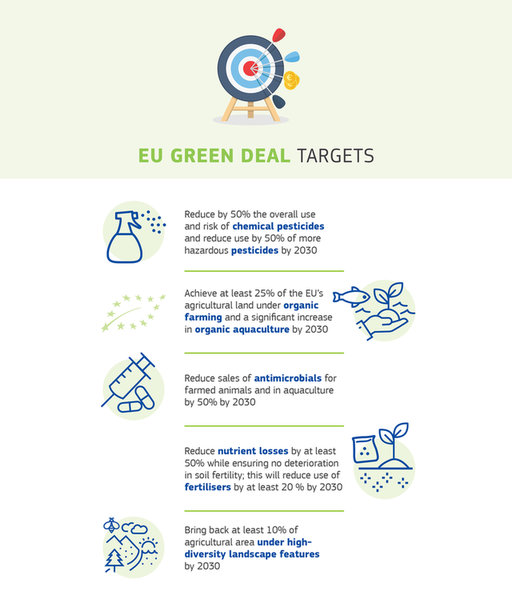Editorial
introduction

Eduardo Cuoco
Director,
IFOAM Organics Europe
Dear SAH Readers,
The way we produce our food has resulted in changes in climate patterns, biodiversity loss, and soil degradation. Society is calling for a paradigm shift in agriculture asking what kind of agriculture we want. How can digitalisation be of help in this process?
Digitalisation is a process of transformation that should not be seen just as one more industrial solution to intensify productions but as a set of tools to support a holistic transformation where the soil is preserved, organic matter is increased, diversification brings together livestock and crops, diversity is increased, nutrient cycles are closed, and inputs are minimized, both in farming and processing.
This transition should be accompanied by a good set of policies to support farmers and actors of the supply chain to become more sustainable.
The green architecture of the CAP should be a key instrument for remunerating and incentivise those farmers safeguarding the environment and providing ecosystem services, such as clean water, healthy soils, enhanced biodiversity, pest control, climate change mitigation, and soil carbon sequestration.
This transition should be accompanied by a good set of policies to support farmers and actors of the supply chain to become more sustainable.
Commission, Parliament, and Council are currently negotiating the content and budget of the CAP’s green architecture. As IFOAM Organics Europe, we are advocating for at least 30% of the pillar 1 budget to be allocated to Eco-Schemes, to support a wide range of climate, animal welfare, and environmental interventions. Different practices, such as agroforestry, organic farming, and the use of mixed species for biodiversity purposes could receive support. Digital solutions, for instance, precision farming could receive support, provided it has a clear positive effect on the environment, such as minimised nutrient release or reduced water use.

If we want to achieve a transition towards a fair, environmentally conscious, healthy, and caring system widely adopted in Europe, we should make sure that all the actors of the agri-food supply chain are linked and dialogue with each other.
Digital Innovation Hubs, maintaining relationships between parties working on digital innovations in agriculture, play a key role. Such cooperation will lead to stronger and stable outputs reducing the need for industrialized solutions.
In this newsletter, you will learn more about innovative solutions that support sustainable farming. As we celebrated the final event of IoF2020 (Internet of Food and Farm 2020) a few weeks ago, we look forward to new perspectives and projects. SmartAgriHubs is now proposing a new open call - PREPARE. It is a great opportunity for Digital Innovation Hubs to set up new Innovation Experiments. We hope this newsletter will inspire you.
Enjoy your reading!
